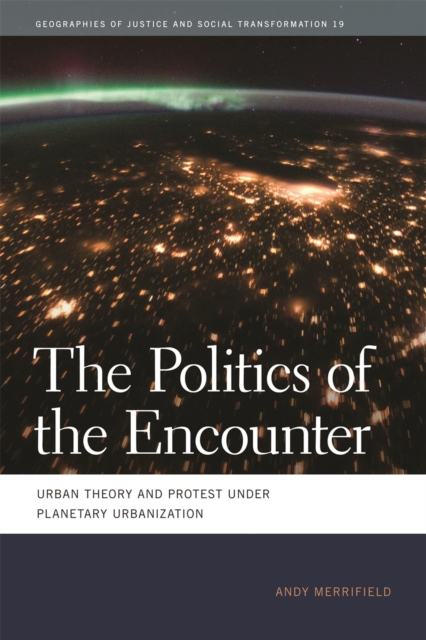
The Politics of the Encounter : Urban Theory and Protest Under Planetary Urbanization Hardback
by Andy Merrifield
Part of the Geographies of Justice and Social Transformation series
Hardback
Description
The Politics of the Encounter is a spirited interrogation of the city as a site of both theoretical inquiry and global social struggle.
The city, writes Andy Merrifield, remains ""important, virtually and materially, for progressive politics."" And yet, he notes, more than forty years have passed since Henri Lefebvre advanced the powerful ideas that still undergird much of our thinking about urbanisation and urban society.
Merrifield rethinks the city in light of the vast changes to our planet since 1970, when Lefebvre's seminal Urban Revolution was first published.
At the same time, he expands on Lefebvre's notion of ""the right to the city,"" which was first conceived in the wake of the 1968 student uprising in Paris. We need to think less of cities as ""entities with borders and clear demarcations between what's inside and what's outside"" and emphasise instead the effects of ""planetary urbanisation,"" a concept of Lefebvre's that Merrifield makes relevant for the ways we now experience the urban.
The city—from Tahrir Square to Occupy Wall Street—seems to be the critical zone in which a new social protest is unfolding, yet dissenters' aspirations are transcending the scale of the city physically and philosophically.
Consequently, we must shift our perspective from ""the right to the city"" to ""the politics of the encounter,"" says Merrifield.
We must ask how revolutionary crowds form, where they draw their energies from, what kind of spaces they occur in—and what kind of new spaces they produce.
Information
-
Item not Available
- Format:Hardback
- Pages:184 pages
- Publisher:University of Georgia Press
- Publication Date:15/03/2013
- Category:
- ISBN:9780820345291
Other Formats
- Paperback / softback from £18.50
Information
-
Item not Available
- Format:Hardback
- Pages:184 pages
- Publisher:University of Georgia Press
- Publication Date:15/03/2013
- Category:
- ISBN:9780820345291










